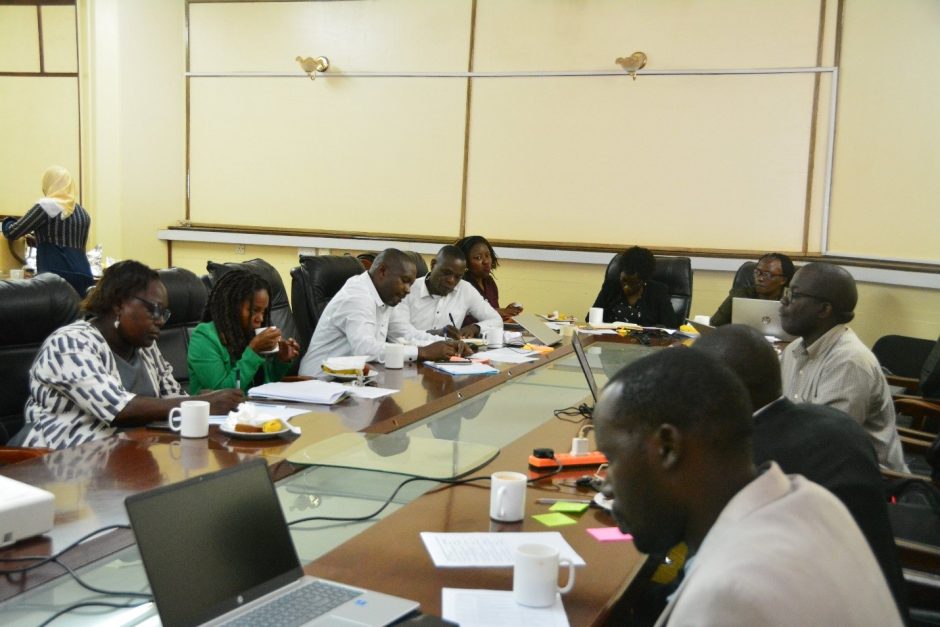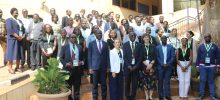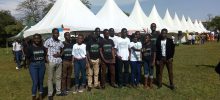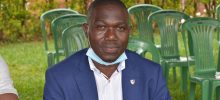Experts Discuss Climate-Smart Agriculture and Livestock Feed Innovations in Uganda
Leading agricultural experts and stakeholders on 21st May 2025 convened for a high-level roundtable discussion on climate-smart initiatives and livestock feed innovations in Uganda. Hosted at the College of Veterinary Medicine, Animal Resources and Biosecurity (CoVAB), Makerere University, the event brought together scientists, policymakers, and entrepreneurs to exchange ideas on sustainable agriculture and the future of livestock feeding.
In the opening remarks, Dr. Dorothy Nampanzira, the head of the Department of Livestock and Industrial Resources Department at CoVAB welcomed participants and expressed deep appreciation for their engagement, emphasizing the significance of such discussions in driving meaningful change. She acknowledged the progress made in climate-smart agriculture while stressing the need for thorough documentation and continued evaluation to ensure that all achievements are fully leveraged for future impact.
The Livestock Climate Smart Technologies Round Table Discussion is one of the activities organized under the four-year collaborative research project namely; Building Capacity for Innovation and Advancement of Climate Smart Agriculture in East and Southern Africa (CICSA-E&SA). One of its objectives is to develop a Climate Smart Agriculture platform that includes key stakeholders engaged and interested in key activities and initiatives that promote Climate Smart Agriculture practices and technologies to share experiences and lessons to further the resilience of farmers among others. The project is run by a project implementation committee comprised of Prof. John Tabuti, Prof. Josephine Esaete, Prof. Vincent Muwanika, and Dr. Dorothy Nampanzira.
Participants were drawn from key units including the Food and Agricultural Organization (FAO), the Ministry of Agriculture, Animal Resources and Fisheries (MAAIF), the College of Agriculture and Environmental Sciences, (CAES), College of Veterinary Medicine, Animal Resources and Biosecurity (CoVAB) among others and they included scientists and PhD students. Throughout the session, experts explored various innovative farming strategies, including improved manure management, the use of repurposed agricultural byproducts, and alternative feeding approaches such as insect-based feed and probiotics. The discussions highlighted the necessity of research-driven solutions to maximize efficiency and ensure safe adoption of these techniques.
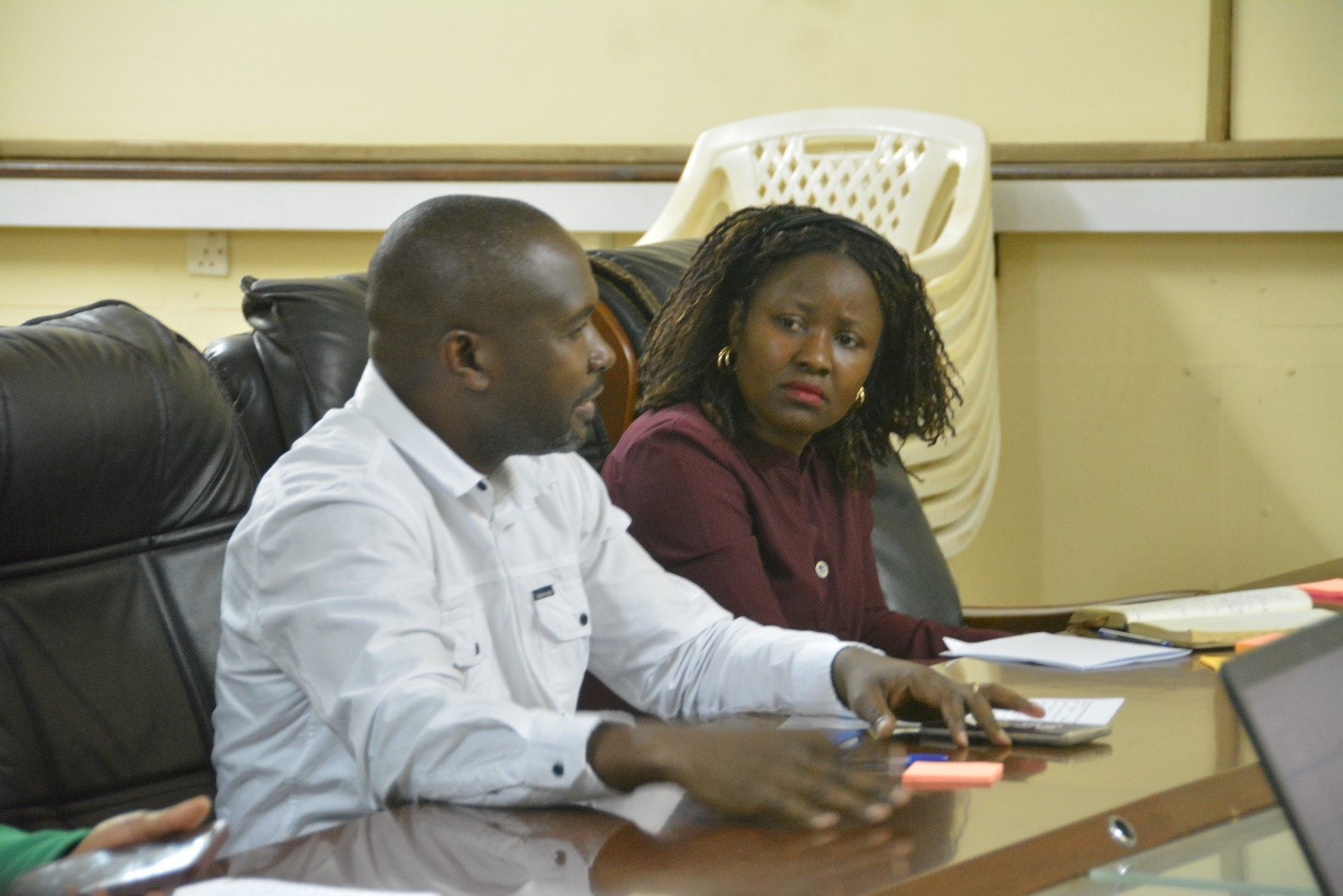
(L-R) Dr. Dorothy Nampanzira, Head of the Livestock and Industrial Resourses Department, CoVAB, flanked by Dr. Maholo Mulongo Denis, Ass. Commissioner Animal Nutrition, MAAIF
With Uganda’s livestock industry expanding rapidly, concerns were raised about gaps in technical knowledge among farmers, particularly as modern farming practices evolve. Participants emphasized the importance of bridging this gap through better documentation, sensitization programs, and closer collaboration between researchers and farmers.
The discussions made some future projections based on available research and experiences drawn from elsewhere which projections indicate that Uganda will need to significantly increase its milk and meat production by 2050 to meet the growing demand. Experts underscored the importance of predictive models and data-driven research to assess feed availability, considering factors such as rising carbon dioxide levels that could affect grass protein content, which is a major component of livestock diets.
The discussions concluded with recommendations to strengthen stakeholder cooperation, enhance information-sharing efforts, and revive research dissemination initiatives. Dr. Nampanzira encouraged continued engagement, urging participants to contribute to future projects and explore funding opportunities to support similar discussions. This roundtable serves as a critical step toward sustainable agriculture, ensuring Uganda remains prepared to meet evolving climate and food security challenges.
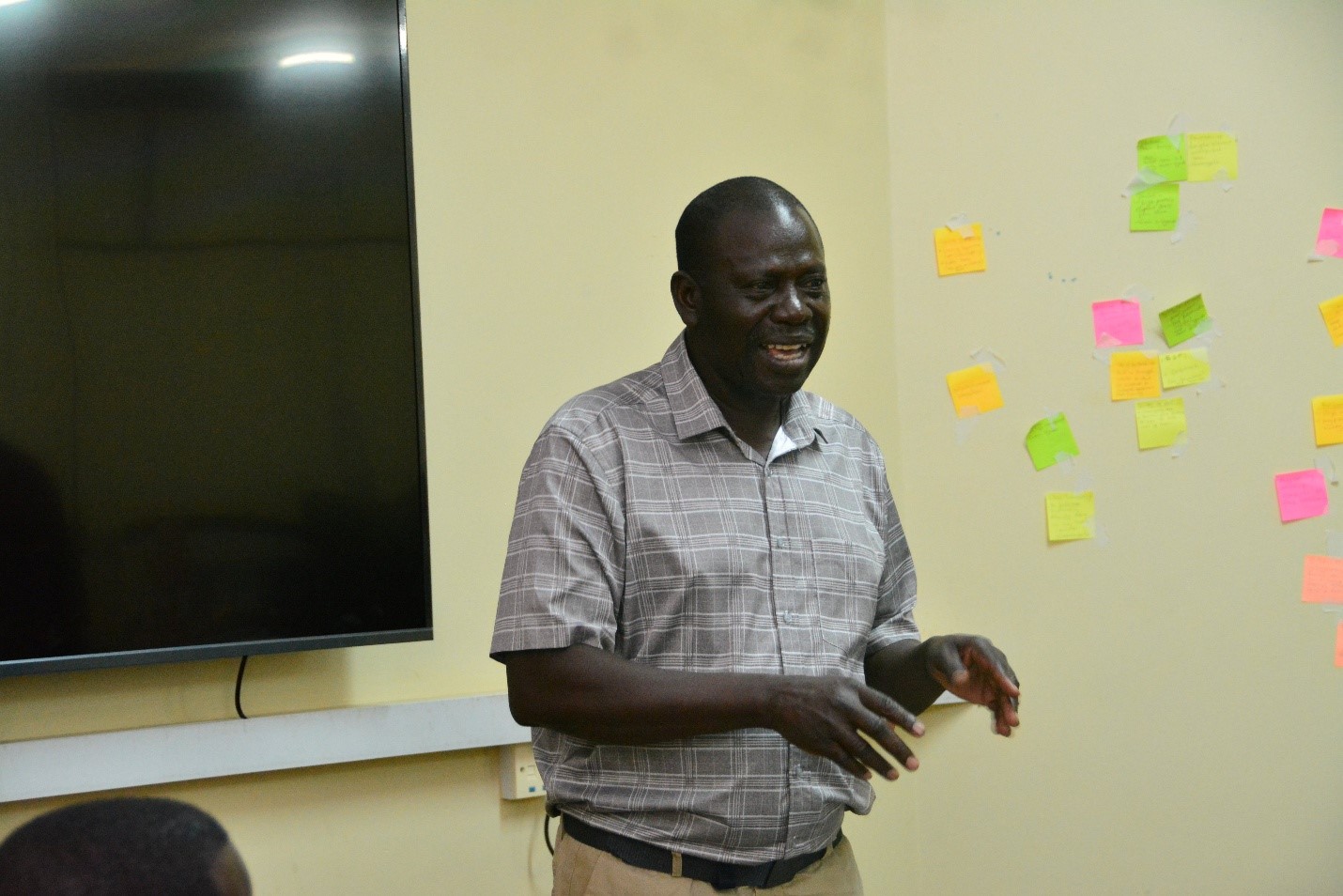
Prof. Vincent Muwanika moderated the sessions during the discourse
During the discussions, participants reflected on various strategies farmers are adopting to cope with climate change, including innovative manure management and repurposing agricultural byproducts. While some methods have traditional roots, enhancing efficiency through research and technology was emphasized as crucial for long-term sustainability.
A key topic was the adoption of alternative feeding strategies such as insect-based feed, blood meal, and probiotics. Scientists highlighted the need for further research to validate these methods, ensuring they meet safety standards and are viable for widespread use. In addition, participants explored high-protein forage options, such as elephant grass from China, which boasts a 19% protein content. Experts warned, however, of the risks associated with introducing non-native plant species, stressing the importance of scientific guidance in agricultural innovations.
Another challenge addressed was the knowledge gap between farmers and researchers. With an increasing number of elite farmers investing in modern practices, the lack of technical oversight could lead to long-term negative effects. Stakeholders called for better documentation of successful farming methods and increased efforts in farmer education.
Discussions also touched on Uganda’s future food security, with projections indicating a 200% increase in milk demand and a 300% rise in meat production by 2050. Experts stressed the importance of data-driven research to assess feed availability and predict future needs, noting that rising carbon dioxide levels could diminish grass protein content, which was a major concern for livestock-dependent industries.

A section of the participants in the dialogue
The event concluded with recommendations to strengthen multi-stakeholder engagement and revive research dissemination initiatives. The Ministry of Agriculture, Animal Industry and Fisheries (MAAIF) was urged to develop regulatory frameworks, particularly on animal feed policy, to support sustainable livestock farming.
In her closing remarks, Dr. Nampanzira praised the participants for their dedication and called for continued collaboration in securing funding for future discussions. She encouraged experts to contribute to extension grants and policy formulation, recognizing the significance of collective action in addressing Uganda’s agricultural challenges


